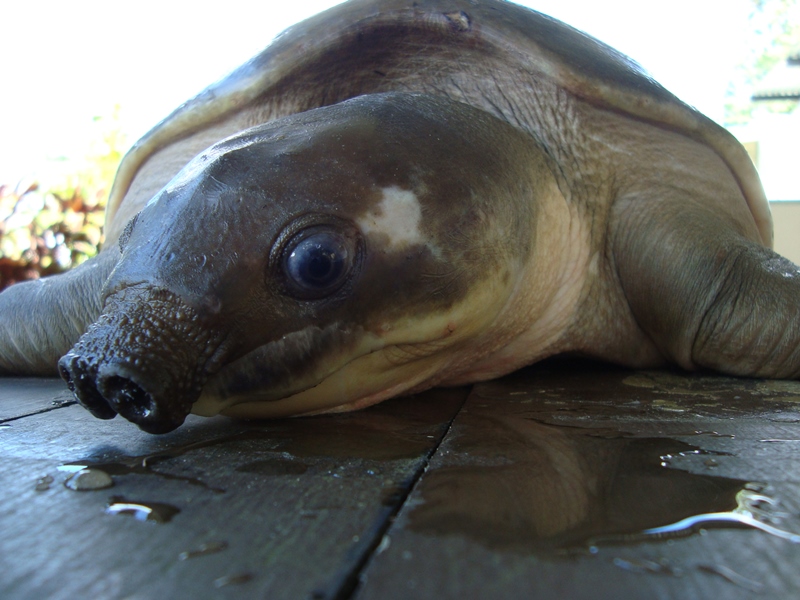20 December 2017: A University of Canberra-led conservation program aimed at saving the Pig-Nosed Turtle (Piku) of Papua New Guinea (PNG) has taken a big leap forward, with the creation of a new Non-Government Organisation to continue the work.
The project, which has been running for more than 10 years, aims to educate PNG locals about the need to protect the threatened turtle, which has been hunted for its meat and eggs.
It’s estimated that the Piku population has halved in less than 40 years, largely due to hunting in PNG and loss of habitat in its Northern Australia range.
The Piku Biodiversity Network Inc (PBN) has been created to promote biodiversity conservation through environmental education, community-led conservation and knowledge generation in PNG.
University of Canberra Masters student and PBN’s founding General Manager Yolarnie Amepou welcomed the move from a research project to a locally-led effort to preserve the Piku.
“It is so great to have the PBN emerge from the Piku program with such fanfare," Ms Amepou said. “Tim Flannery was a special guest at the launch of the Network and he also spent a day examining our little piggies at the Port Moresby Nature Park.”
Ms Amepou was named as a UN 2017 Youth Champion for Sustainable Development Goals at a ceremony held in PNG last month. She was also awarded the Pride of PNG Award for Women (Environment Division) in 2016.
The PBN’s connection with the University of Canberra will continue with a Memorandum of Understanding, recently signed by the Vice Chancellor Deep Saini. Distinguished Professor Arthur Georges will also be serving on the PBN Board.
Professor Georges said handing direction to a PNG-based organisation is a positive step.
“It is terrific to see the Piku program move to a more sustainable footing, where it can diversify its sources of income, under a stable management structure led by a winning team of PNG nationals,” Professor Georges said.
"This will provide opportunities for many more people to engage in community-led biodiversity conservation in the Kikori region of PNG, and who knows, perhaps on a much wider regional basis in the future."
The Piku Biodiversity Network was incorporated last week, and was recently featured at the PNG-Australia Alumni Association annual dinner, where the Association presented the PBN with a donation of 10,000 Kina.




